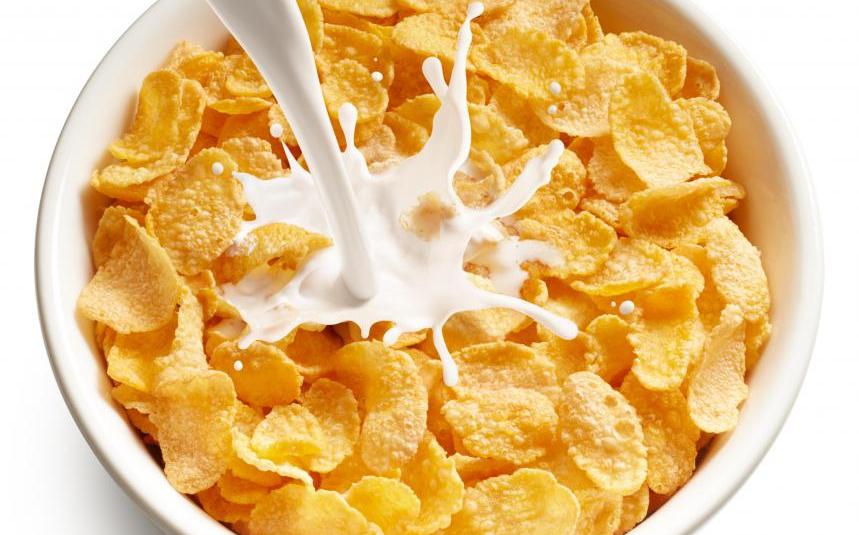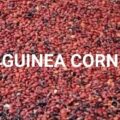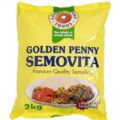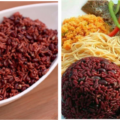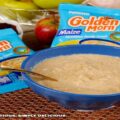Cornflakes is one of the most popular breakfast cereals eaten in the world, and for many people across all ages, it has become an integral part of their morning routines. The home-made cereal, created by John Harvey Kellogg in 1894, was initially marketed as a “healthy, ready-to-eat anti-masturbatory morning meal”. Currently, there are two leading brands in the Nigerian market namely NASCO and Kellogg’s; others are Supreme, Good Morning, Infinity Brands, just to mention a few.
In Nigeria, the consumption of cornflakes has further been strengthened by the growing class of professionals who prefer daily breakfast cereals over more time-consuming traditional breakfast meals such as “pap” (a hot cornmeal). Also, the ever-increasing child population in the country contributes to the surge in demand for cereal meals, as children are the major targets for the breakfast cereals.
Nutritional Value
Apart from their salty, buttery taste, corn flakes is a good source of nutrients, vitamins and minerals. Consuming 33 gram of corn flakes offers 0.858 mg of Vitamin B2, 0.667 mg of Vitamin B1, 4.39 mg of Iron, 27.85 g of Carbohydrate, 0.198 mg of Vitamin B6, 211 mg of Sodium, 1.584 mg of Vitamin B3, 20 µg of Vitamin B9, 2.48 g of Protein, 29 mg of Phosphorus and 13 mg of Magnesium.
Health benefits of Corn Flakes
There is a long list of benefits for cereals grain, and they are an important part of our daily diet. Cereals can grow in adverse environmental and bad soil conditions, and the yield of cereal grains is not compromised due to harsh environmental conditions. They give the highest yield when compared to most other crops. After harvesting, the storage conditions can influence the nutritional value of cereals, but as cereals are a stable food with a low moisture content, they can be stored for a long period of time without affecting the nutritional value.
Cereals are nutritionally important sources of dietary protein, iron, vitamin B complex, vitamin E, carbohydrates, niacin, riboflavin, thiamine, fiber and traces of minerals important for both humans and animals. Soluble bran in cereals is also helpful for lowering blood cholesterol levels and also prevent cardiovascular diseases. Cereals also help to prevent cancer, constipation, colon disorders and high blood sugar. When breakfast cereals are combine with milk, they provide protein rich food. For infants iron fortified cereals are used as premium solid foods.
Cereals and Cornflakes are the perfect escape to the narrow time tunnel! But the question is are these healthy or not? Well the clear answer is Yes! Cornflakes are healthy for you; here are some of the many benefits of Cornflakes:
- Packed With Nutrition
Corn flakes are not only tasty; but an excellent source of vitamins, folate, minerals, dietary fiber, proteins, and also carbohydrates. Folate is actually important for the formation of new cells, thus most important during pregnancy. It also prevents heart ailments and colon cancer.
Apart from that thiamine content in corn flakes speeds up carbohydrate metabolism, thus increasing energy production as well as cerebral functions. Also taken with fruits, corn flakes also add fiber in your diet, thus preventing constipation and related colon diseases. It is also rich in iron, which maintains healthy blood levels and keeps the brain alert. Some more nutritional value of corn flakes is contributed by its niacin, vitamin A, riboflavin, vitamin B, and vitamin B12 content. Corn has lutein, which is important for eye health.
- Beneficial for Heart disease
Low fat foods keep your stomach full, thus decreasing the intake of unnecessary unhealthy food. Lack of cholesterol ensures that corn flakes are ideal as day starters for people having heart diseases. Also, a study of postmenopausal women found that six or more servings of wholegrain foods per week protected against the effects of cardiovascular disease. A contributing factor for heart disease is high blood cholesterol levels. Regularly eating wholegrain cereals that are rich in soluble fiber. Cereals which contain psyllium, has been found to significantly reduce the amount of cholesterol in the bloodstream and may be protective against the development of heart disease.
- Protein Rich Food
As soon as healthy corn flakes are added with milk, it makes diet protein rich. Protein is vital for growing immunity, regulating enzymes and hormones, repairing body tissues and maintaining the structure of RBC. When corn flakes are mixed with any other component like honey or almonds, the benefits of these additions also get added in your diet.
- Maintains Lung Health
Corn has a carotenoid known as beta-cryptoxanthin that helps to promote the health of lungs and also prevents lung cancer.
- Weight Loss
If losing weight is your goal, is either you go to a fitness center or you do workout at home using best weight machines. In either case, using the right weight machines and food intake is very important. Corn flakes meals are obviously easy to prepare and suitable to use. Weight loss could result from consumption of the corn flake diet over a period of time as calorie intake is limited and portion sizes can be easily controlled.
Side effects of Corn Flakes
Corn flakes are processed by tiny part of corn, and can contain sugar and the other ingredient. This can lead to inflammation and increases in blood sugar especially when excess sugar is added. Diseases caused by excessive consumption of carbohydrates include:
- high blood pressure
- obesity
- heart disease
- diabetes,
- stroke and high cholesterol.
- weight gain
Although, Corn Flakes diet can’t assist in losing weight & would not lead children having a balanced diet as their breakfast before school.
How To Make Corn Flakes
- In a large bowl, mix 1 cup of cornmeal with sugar, salt and vanilla extract.
- Add water, a little at a time, and keep stirring until the batter becomes smooth.
- Add more water if necessary if the batter is too thick as you want the consistency of your batter to be similar to that of idli batter.
- Line a baking tray with foil or parchment paper and grease lightly with oil or spray.
- Pour the prepared batter on this tray and spread it out evenly to make a thin layer of about 1/3 to ¼ inches.
- With 1 teaspoon of water mix the remaining ½ cup of cornmeal.
- Mix until the mixture starts looking like breadcrumbs
- Sprinkle the breadcrumb mix on top of the other batter in the tray.
- Lower the heat down to 250 degrees and remove the tray from the oven.
- Let it cool for a while and then crack this batter into small flakes with your hands.
- Place the tray again in the oven for 45 minutes or until the flakes become golden and crispy.
- Serve these with milk once they have completely cooled down and dried.
- Store the remaining flakes in an airtight jar or airtight containers in a cool dry place
- Place the tray in the middle rack of a preheated oven at 350 degrees for about 10 to 15 minutes.away from sunlight.
References:
http://www.saviodsilva.net/cornflakes-benefits.htm
https://www.plus100years.com/love-to-eat-corn-flakes-know-is-corn-flakes-good-for-health-or-not/
https://en.wikipedia.org/wiki/Corn_flakes#cite_note-13

